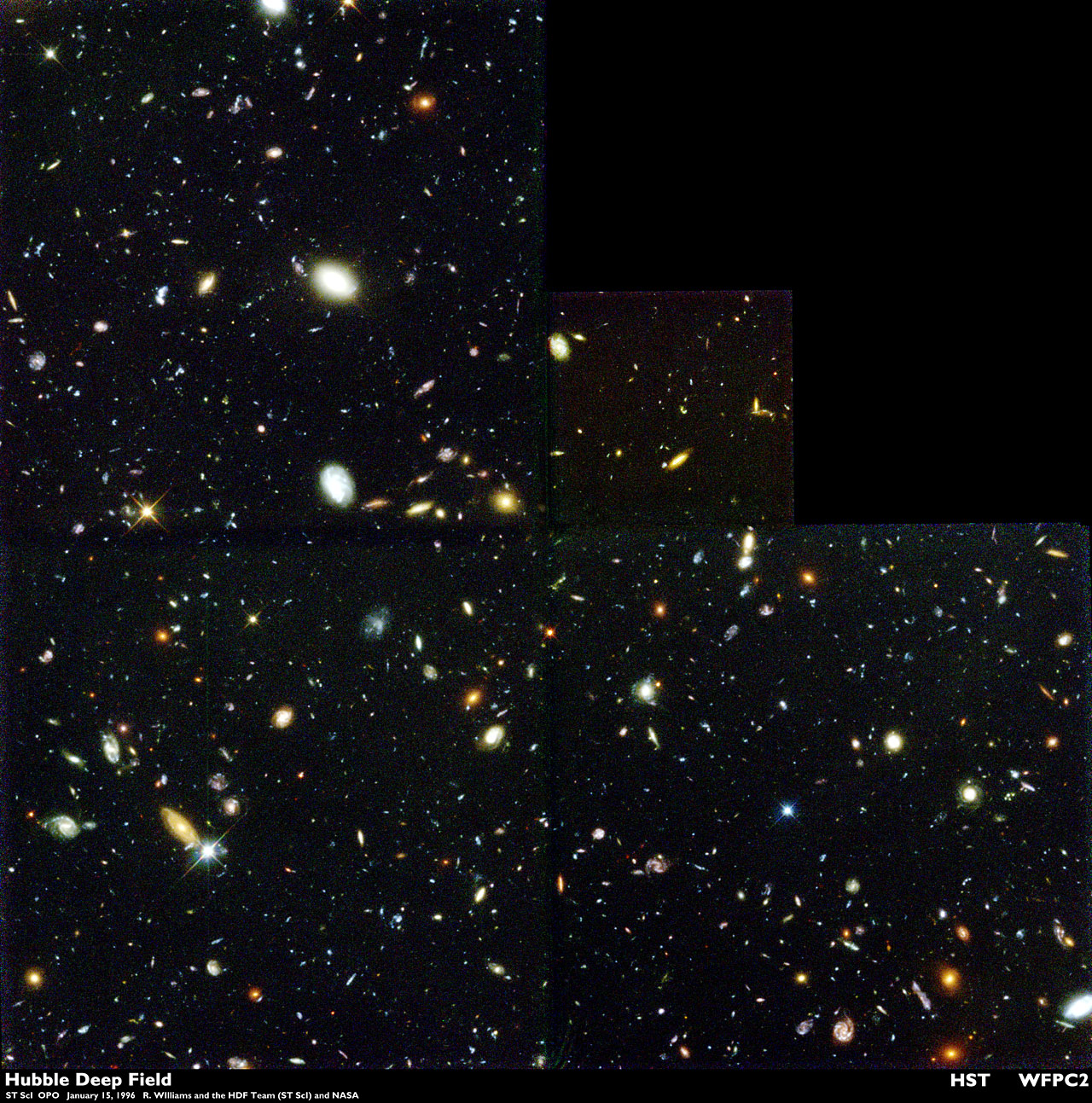President Trump Hails NASA's Space Exploration Spirit in Weekly Address
President Donald Trump used his weekly address Saturday (March 25) to praise NASA's legacy of exploration and discovery in a video that also marked the signing of the 2017 NASA authorization bill earlier in the week.
"My fellow Americans, this week in the company of astronaut I was honored to sign the NASA Transition Authorization act right into law," Trump said in his weekly video address released by the White House. "With this legislation, we renew our national commitment to NASA's mission of exploration and discovery, and we continue a tradition that is as old as mankind. We look to the heavens with wonder and curiosity." Trump signed the NASA authorization bill on Tuesday (March 21).
The video opened with clips from NASA's historic Apollo 11 moon landing mission, from a view of Neil Armstrong taking "one small step" on the lunar surface, to crowds cheering the Apollo 11 crew's return to Earth with a ticker tape parade. Trump then recounted a story from the Hubble Space Telescope's history. [Presidential Visions for NASA Throughout History]
"More than two decades ago, one scientist followed this curiosity and dramatically changed our understanding of the universe," Trump said. "The year was 1995. Taxpayers were spending billions and billions of dollars on the Hubble Space Telescope. The astronomer in charge had a novel idea. He wanted to use the expensive telescope in a totally unconventional way."
That scientist was Robert Williams, who wanted Hubble to stare at a completely empty patch of space for 100 hours (10 days over Christmas as Trump says in the video) to see what might be out there. The result was the Hubble Deep Field, the stunning discovery of thousands of galaxies in an otherwise empty patch of space. Science writer Nadia Drake has a great recounting of the Hubble Deep Field's history here.

"In that tiny patch of sky, the Hubble Deep Field showed thousands of lights. Each brilliant spot represented not a single star but an entire galaxy. The discovery was absolutely incredible," Trump said. "But the incredible image did not satisfy our deep hunger for knowledge. It increased ever more and even more, and reminded us how much we do not know about space, and frankly how much we do not know about life."
The Hubble Space Telescope has since made even longer observations of deep space, including the Hubble Ultra Deep Field in 2004 and the eXtreme Deep Field in 2012. NASA and the European Space Agency launched Hubble in 1990. The space telescope will celebrate its 27th anniversary in space in April.
Get the Space.com Newsletter
Breaking space news, the latest updates on rocket launches, skywatching events and more!
Hubble's successor, the infrared James Webb Space Telescope, is scheduled to launch in 2018 to "gaze back through time and space to the very first stars and the earliest galaxies in the universe," Trump said. "We can only imagine what incredible visions it will bring."
Trump said he was glad Congress came together to approve the NASA authorization bill.
"At a time when Washington is consumed with the daily debates of our nation, I was proud that Congress came together overwhelmingly to reaffirm our nation's commitment to expanding the frontiers of knowledge," he said.
Trump added that there are many lessons NASA can teach all Americans, and not all of them are about space. "One lesson is the need to view old questions with fresh eyes; to have the courage to look for answers in places we have never looked before; to think in new ways because we have new information," he said. "Most of all, new discoveries remind us that in America anything is possible if we have the courage and wisdom to learn."
Trump closed with a look toward the future. He marveled at the pace at which Americans have explored space.
"In the span of one lifetime, our nation went from black and white pictures of the first airplane to beautiful images of the oldest galaxies captured by a camera in outer space," Trump said. "I am confident that if Americans can achieve these things, there is no problem we cannot solve. There is no challenge we cannot meet. There is no aim that is too high. Whatever it takes and however long it will be, we are a nation of problem solves and the future belongs to us. We are truly a great place to be. I love America."
Email Tariq Malik at tmalik@space.com or follow him @tariqjmalik and Google+. Follow us @Spacedotcom, Facebook and Google+. Original article on Space.com.
Join our Space Forums to keep talking space on the latest missions, night sky and more! And if you have a news tip, correction or comment, let us know at: community@space.com.

Tariq is the Editor-in-Chief of Space.com and joined the team in 2001, first as an intern and staff writer, and later as an editor. He covers human spaceflight, exploration and space science, as well as skywatching and entertainment. He became Space.com's Managing Editor in 2009 and Editor-in-Chief in 2019. Before joining Space.com, Tariq was a staff reporter for The Los Angeles Times covering education and city beats in La Habra, Fullerton and Huntington Beach. In October 2022, Tariq received the Harry Kolcum Award for excellence in space reporting from the National Space Club Florida Committee. He is also an Eagle Scout (yes, he has the Space Exploration merit badge) and went to Space Camp four times as a kid and a fifth time as an adult. He has journalism degrees from the University of Southern California and New York University. You can find Tariq at Space.com and as the co-host to the This Week In Space podcast with space historian Rod Pyle on the TWiT network. To see his latest project, you can follow Tariq on Twitter @tariqjmalik.









